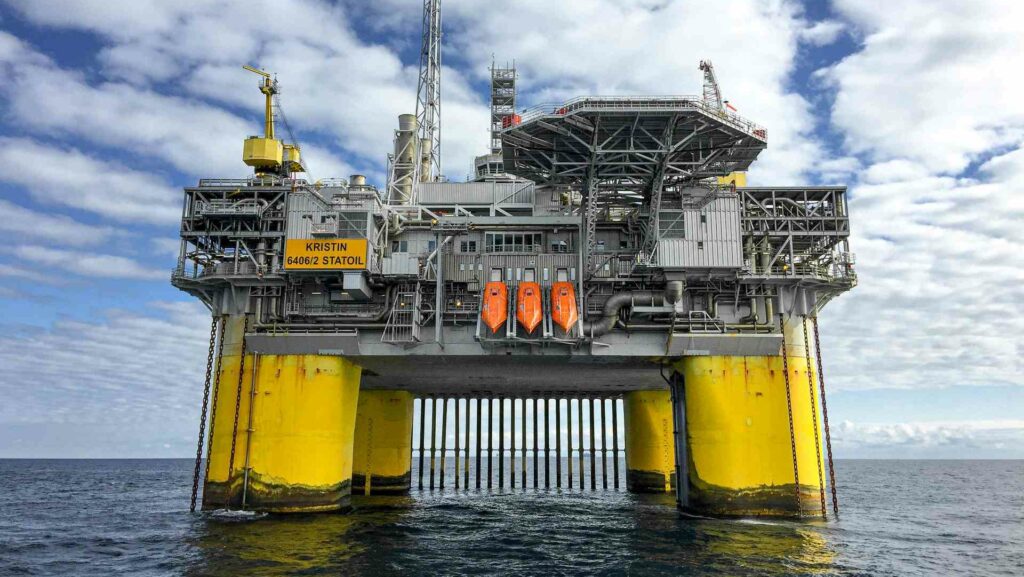As British and American Oil Firms Roll Back on Renewables, the Gulf Doubles Down

It was the discovery of oil that enabled Abu Dhabi, once a coastal backwater, to become the major a regional and international power that it is today.
To this day, a full-size replica of an oil rig adorns the headquarters of Abu Dhabi’s National Oil Company (ADNOC), a tribute to how the city built its massive wealth and global prestige.
But despite the riches that have been brought to the emirate via its crude oil reserves, Abu Dhabi has doubled down on the move away from oil and into renewables. ADNOC has committed to net zero emissions by 2045, and spent billions on investments into renewable energy companies, including last year’s $16bn acquisition of Covestro.
A few years ago, it wasn’t alone. Sensing the global mood, oil companies including Shell and BP were falling over each other to commit to the green transition. But then came the spike in oil prices after the Russian invasion of Ukraine, and the ascendance (again) of President Donald Trump, an unabashed climate change sceptic, to the White House.
In October last year, BP quietly dropped its target to cut oil output in the next five years, from 40% by 2030 to 25%. Shell then announced that it would scale back its investment in renewables, with new CEO Wael Sawan telling investors that the company “cannot justify going for a low return. Absolutely we want to go for lower and lower carbon, but it has to be profitable.”
In light of all this, Abu Dhabi could have quietly rolled back its own commitments and concentrated on making as much cash as it can. Instead, it has doubled down. In 2024, a quarter of the UAE’s energy came via its nuclear power plant, and the emirate-wide target is for 44% of its power to be generated from renewables by 2050.
It has also bet heavily on natural gas, which has lower carbon emissions and is cheaper than nuclear power, signing deals in Azerbaijan, Mozambique and the US in the first half of 2024. Deals like Covestro, as well as the $3.6 billion takeover of Fertiglobe in 2023, also show ADNOC’s pivot into chemicals by building supply chains in plastic, foams and ammonia.
ADNOC is also piling money into low-carbon energy and chemicals via a new investment arm, XRG, which will have $80 billion to invest in “transformational” global investments and is looking to double its asset value over the next ten years. It is based on the expectation that demand for chemicals and speciality products will increase by 70% by 2050.
Nobody would have thought two decades ago – or even a decade – that the oil-rich Gulf would one day be in poll position on renewable energy. In 2023, 40% of Abu Dhabi’s total revenues came from oil, and yet the country is pushing ahead with the green transition at a time when Western economies are retreating. The global energy landscape is shifting.
The question is, why?
The push is undoubtedly a national one. Despite controversy over the UAE hosting COP28, the summit produced the first international consensus on transitioning away from fossil fuels, despite opposition from Saudi Arabia, Iraq, and Russia. While the agreement was not as strong as some had hoped, it marked a significant shift in global climate policy. The UAE, an OPEC member, leveraged its diplomatic position to broker the deal while continuing its investments in renewable energy, distinguishing itself from its more resistant regional neighbors.
For decades, many in the environmental movement have viewed the fossil fuel industry as an obstacle to climate action. Oil companies have spent years lobbying against environmental policies and delaying the transition to cleaner energy. There is good reason to be skeptical of their intentions. However, the reality is that some companies are responding to economic pressures and beginning to invest in cleaner energy sources.
ADNOC’s investments in renewables, hydrogen, and carbon capture technology reflect a recognition that these industries will play a central role in the future of energy.
ADNOC’s newly launched investment arm, XRG, which will allocate $80 billion toward renewable energy, low-carbon technologies, and sustainable industries. This money will fund global projects in hydrogen, carbon capture, and other green energy solutions. If spent wisely, it could accelerate the transition away from fossil fuels and scale up industries that need investment to become commercially viable.
AI too has played a major role. ADNOC has committed $15 billion to AI-driven decarbonization by 2030, deploying 30+ AI solutions across operations. Its Panorama Digital Command Center analyzes 200 million+ data points daily, optimizing efficiency. Through AIQ, a joint venture with G42, ADNOC develops energy-focused AI, achieving up to 20% efficiency gains via predictive maintenance and automation.
It would be naive to think that the sole reason for this is saving the Earth: this is clearly a commercial play. The UAE is aware that a) oil will not last forever, and b) renewable energy despite some setbacks is the future. This is not a moral crusade; it is a business strategy.
But that is not necessarily a bad thing. If we are to make the transition to green energy, then business – and Big Oil – need to be part of that transition. It will not do that unless it can make money. In that, companies like ADNOC can be allies to the environmentalist cause, albeit unlikely ones.
This doesn’t mean giving oil companies a free pass. It does not mean assuming that their commitments to clean energy will always be followed through. But it does suggest that a more pragmatic approach is needed. Rather than opposing any involvement from the fossil fuel industry in the energy transition, there is an opportunity to push them to go further, faster.
Rolling Stone UK publishes articles from a variety of contributors which express a wide range of viewpoints. The positions taken in these articles are not necessarily those of Rolling Stone UK.
